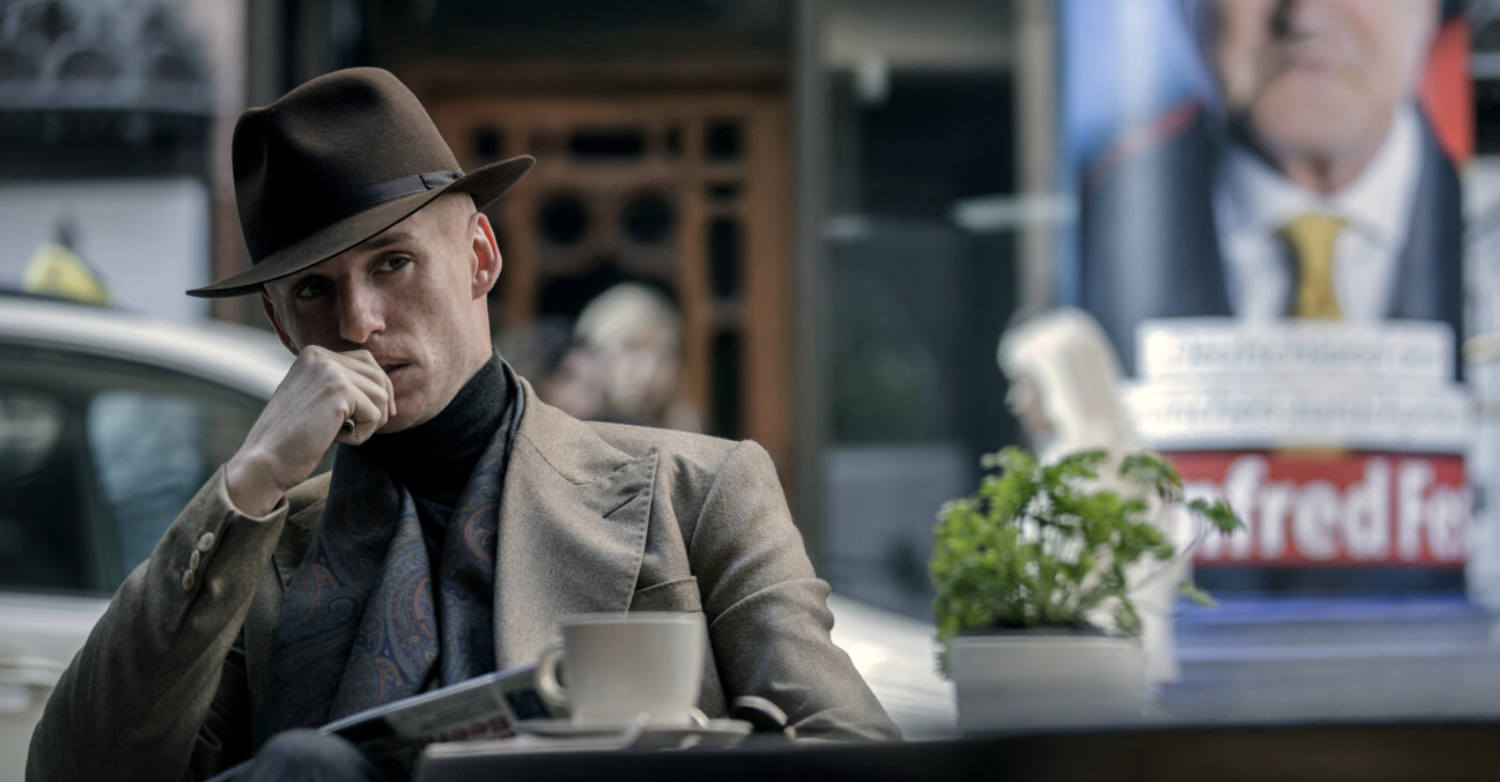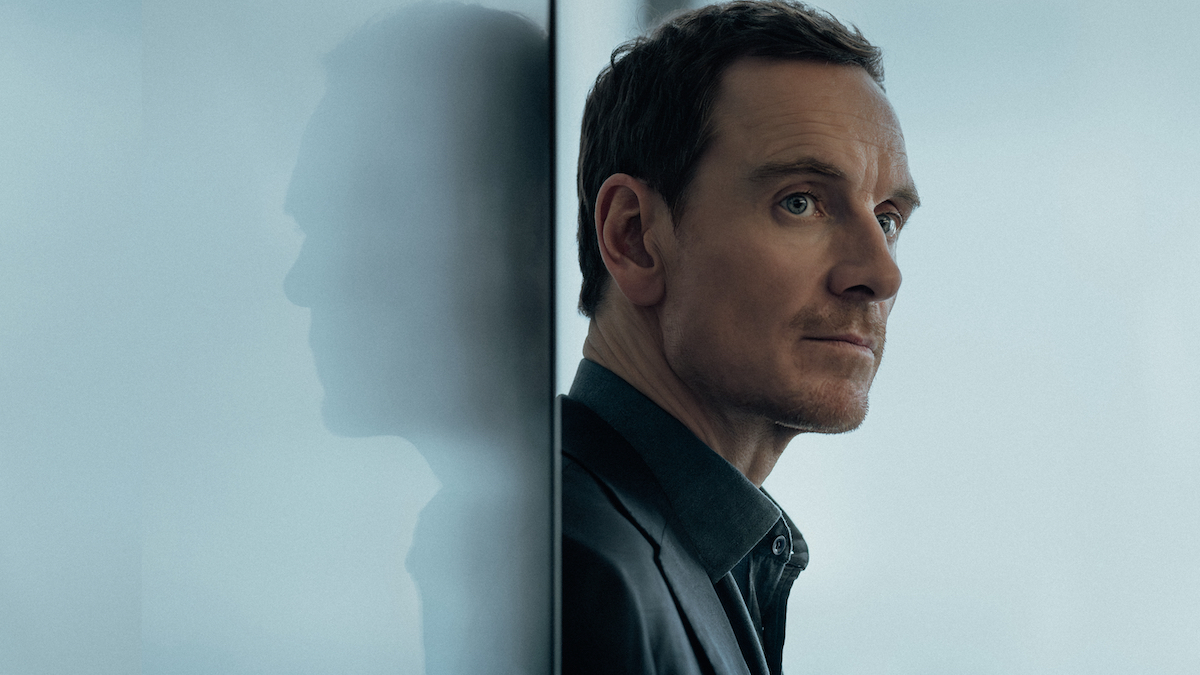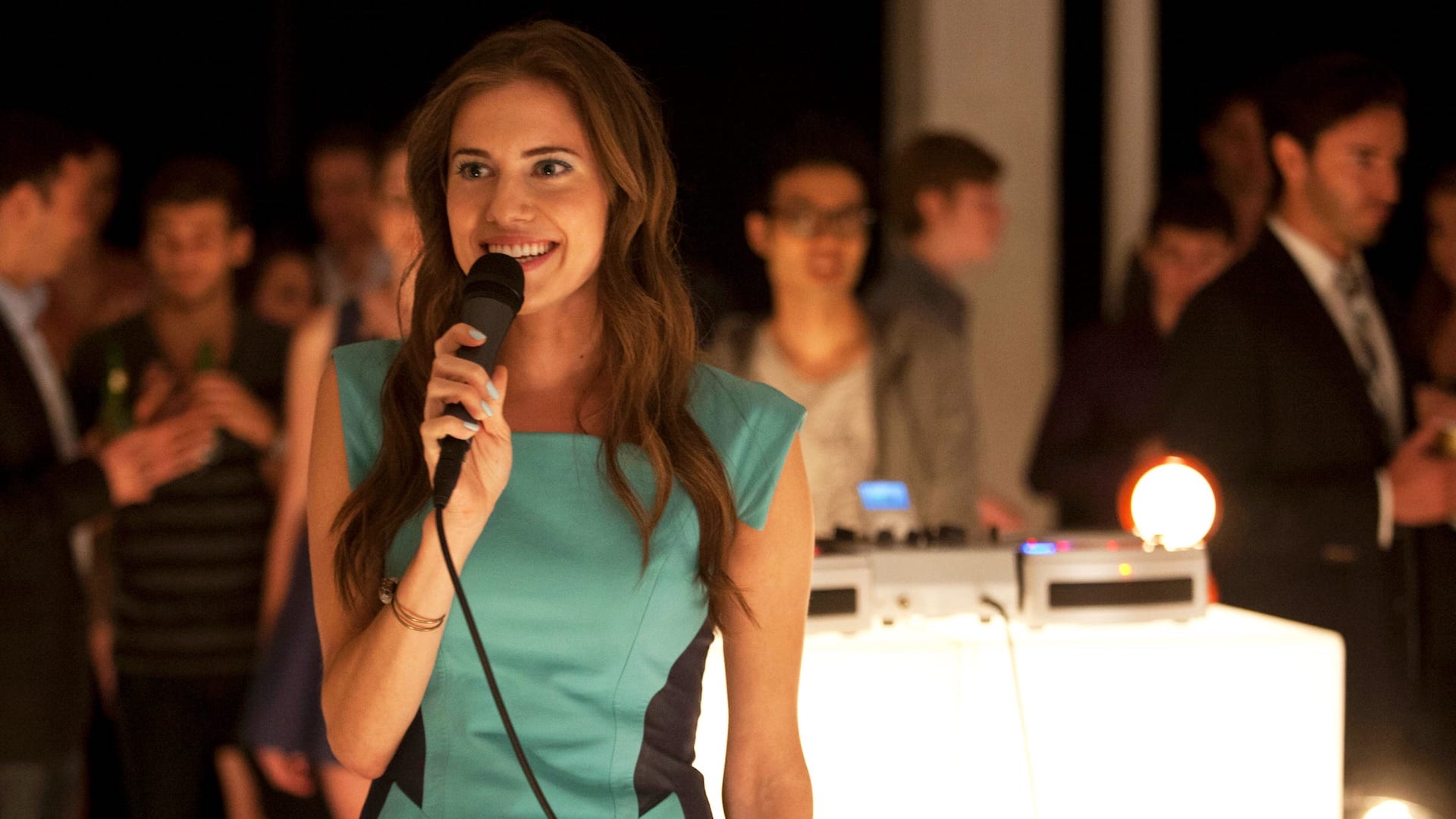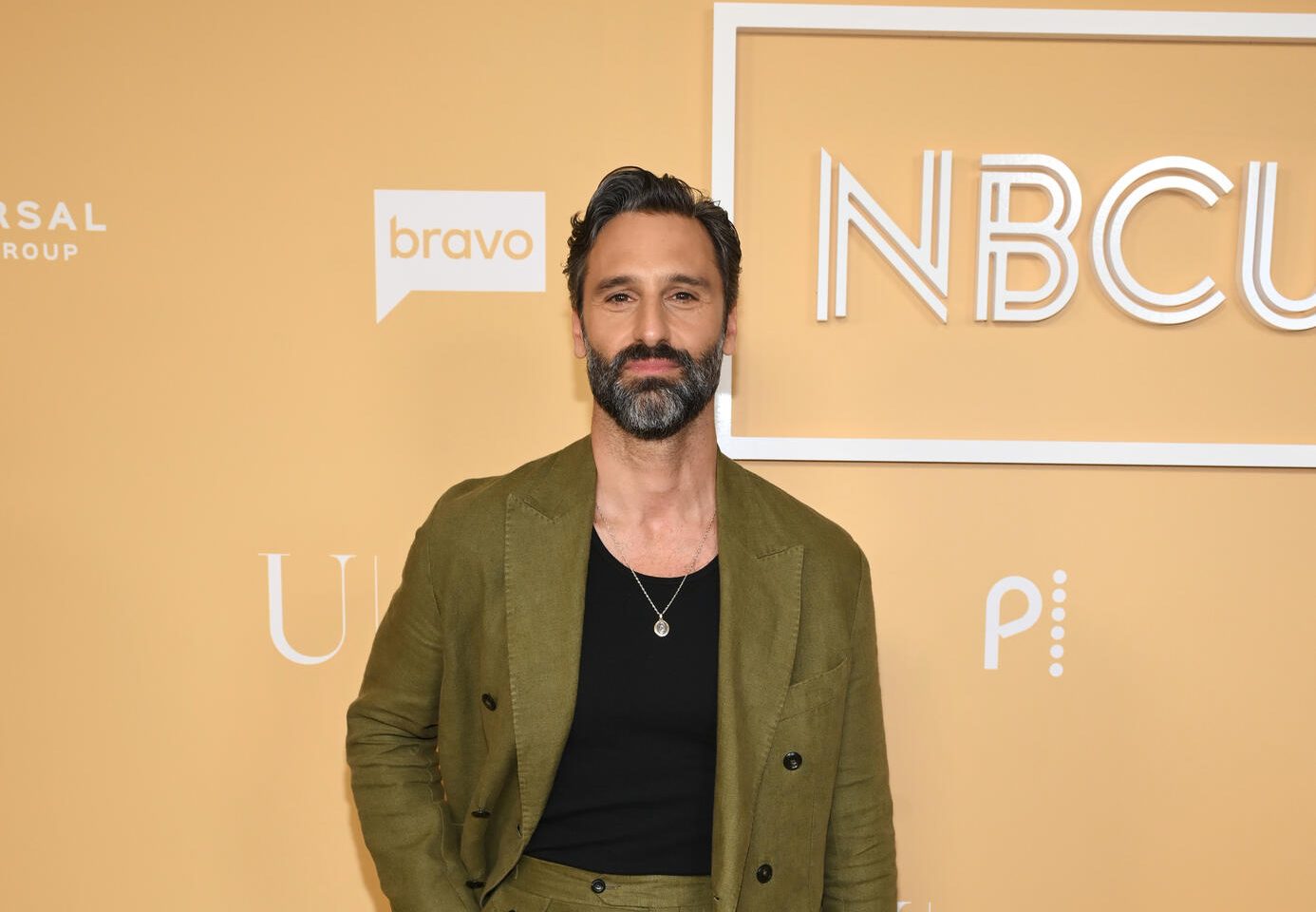
This Emmy season, four starry Best Drama contenders put a spin on the venerable spy genre. Three newbies, “The Agency” (Paramount+/Showtime), “The Day of the Jackal” (Peacock), and “Black Doves” (Netflix) are already prepping their second seasons, while one established series, “Slow Horses” (AppleTV+) will premiere Season 5 on September 24.
“Slow Horses” Season 4 has already scored a number of critic and guild nominations, following nine Emmy Primetime nominations and one win (showrunner/writer Will Smith) for Season 3. Inevitably, while critically lauded and popular, in a competitive field, the new shows are playing catch-up with the already established “Slow Horses.” But this year, anything can happen.
Three of these shows are British, while the American “The Agency” just looks British: It’s set at the CIA London office, is written by the British Jez and John-Henry Butterworth, and stars Irish Michael Fassbender playing American and British actress Jodie Turner-Smith playing Sudanese.

“The Day of the Jackal” (Peacock)
Provenance: Showrunner Ronan Bennett (“Mobland”) adapted and made contemporary Frederick Forsyth’s 1971 “The Day of the Jackal” novel and Fred Zinnemann’s 1973 movie.
Star: Eddie Redmayne, also an executive producer, collaborated with the team on crafting this update of a classic spy thriller, in order to flesh out the original charismatic killer played by Edward Fox over 10 episodes. Redmayne’s lone wolf assassin “is a sociopath mercenary,” the actor told me on Zoom, “but of course, the challenge is to seek the humanity and for me, the joy and challenge of the piece was threading the needle of someone doing such horrific things and yet somehow still drawing you in and you feeling moments of compassion despite the repugnant behavior.”
Tricks of the Trade: In today’s world, it turns out, going analog with elaborate wigs and prosthetic makeup is the best way to disguise yourself. The Jackal also works with a brilliant gun designer who can pack long-range sniper rifles into small undetectable spaces. “It’s removing yourself from the digital world,” said Redmayne. “Talking to people in MI6, our makeup artists had been approached by spy agencies because nowadays, because of facial technology, to disappear you have to go offline. And so weirdly you have to go back to the analog way of living.”
Identity Crisis: The Jackal’s many identities include Happily Married Man; he and his Spanish wife Nuria (Ursula Cabrero) are raising a small child. “I saw him as an actor, really,” said Redmayne. “And he plays all these different characters, and he’s lost a sense of himself. Any spy or mercenary line of work comes at a massive cost. And that is basically a life of solitude. In the book and the original movie, you know nothing about the man. And my take on it was that he had chosen to live this solitary life, and then it’s an addiction for him. But then he meets this woman, and has the audacity to believe he can juggle the two things. In theory, this is going to be his last job. He has this beautiful home, this child. And yet, what I was keen to do was to play the addiction. When you are as virtuoso as he is, I don’t believe for a minute that he would be happy lying on the sunbed, despite the life that he’s collected for himself.”
The Nemesis: Relentless MI6 agent Bianca Pullman (Lashana Lynch) is hot on the Jackal’s trail — and almost gets him. The duo both have parallel work addiction issues and neglect their families. “In the original movie and book, it was very black and white, very white male,” said Redmayne. “And the Jackal was bad, but charismatic, and the Michael Lonsdale character was good. These characters have two sides to them and their moral choices, what they’re willing to sacrifice. I loved this idea, purely in a formal way, that you had these two people who hopefully compelled you and repelled you in equal measure who were on a one-way collision path.”
Who Can You Trust? The Jackal encounters many untrustworthy double-dealers along the way; in his backstory he is so disgusted with the British Army in Afghanistan that he finds a brutal way to walk away leaving himself for dead. So far, Nuria has stuck with him. And Pullman has to cope with the corrupt MI6 operatives who undermine her along the way.
Next Season: Redmayne is already in London in the writers room poring over the first scripts for Season 2. He survives Season 1, barely, and will soon track down his runaway wife and child. “I’m so excited to see where she takes us when we come back for a second season,” said Redmayne. “The Jackal in his silence needed a foil who was challenging him and had this inner strength. I’ve not done returning television, but it’s so lovely when you fall for it, albeit a deeply compromised character.”

“Slow Horses” (Apple TV+)
Provenance: The show was adapted by showrunner Will Smith and his writer’s room from Mick Herron’s series of “Slow Horses” bestsellers, launched in 2010. “Mick’s brilliant pitch for the books, because he’s working in an office with people messing up and being incompetent and lazy, was to imagine, ‘What if spies were like this?’” said Smith. “It’s like putting regular office politics into the spy genre. He doesn’t have a plot that he then puts the characters into. He thinks, ‘where are the characters emotionally, and what are they going to do, and what are interesting combinations of characters?’ You’re on that journey with them, you’re invested in them, and you’re interested to see what happens to them. It’s like proper literary characters, but in a genre novel. They’re human spies. They’re fallible. They’re all struggling with relatable issues. So you’re smashing that up against the thriller plot, and with the humor as well.”
Stars: Gary Oldman plays wily veteran Jackson Lamb, whose dilapidated London Slough House harbors a posse of failed MI5 agents who he ribs constantly for their ineptitude. “The premise is, it’s a precinct where nothing ever happens. It’s a dead-end office,” said Smith. “There’s no action. And then [in Season 4] death literally comes to the door.”
Identity Crisis: Jack Lowden plays River Cartwright, who keeps trying to prove that he doesn’t really belong with these other miscreants (he was set up in Season 1), but while he is a gifted agent capable of heroic action, something usually goes (often comically) awry. He tries to steal a motorcycle and it’s a pedal bike. He jumps out a window and nimbly skips across roofs only to break through onto a pile of tires.
“The joy of it is he gets to play the hero and the clown,” said Smith, quoting Lowden’s co-star Kadiff Kirwan (Marcus Longridge). “Jack can play all those beats. He could do the comedy, the drama, and the ‘romance’ with Louisa or whatever. But if he always wins, there’s no jeopardy and there’s no stakes. You want to be unexpected. Otherwise it doesn’t engage the audience. You want to feel for him when it doesn’t work, and you want to cheer for him when it does.”
Nemesis: Slough House seems always to be in the crosshairs of MI5 headquarters, or “The Park,” whether it’s a series of murderously corrupt “First Chairs,” wily “Second Chair” Diana Taverner (Kristin Scott Thomas), or their vicious “dogs” who seek any excuse to beat up the Slough House gang. “With this show, there’s a very specific tone,” said director Adam Randall. “There’s a lot of comedy and action and thrills, but you can’t push it too far in any way, because you have to believe it.”
Tricks of the Trade: The slovenly Lamb is grossly unkempt, shovels greasy noodles into his mouth, and often sleeps off the previous night’s drinking in his office. This subterfuge throws people off the fact that he is a savvy motherfucker who is always a few steps ahead of the action. “Lamb uses humor to undermine people and disarm and deflect,” said Smith.
At the end of Season 4 [Spoiler Alert], Lamb orders Cartwright, who has just checked his Alzheimer’s-ridden grandfather [Jonathan Pryce] into a nursing home, to meet him at a bar. “It’s not overly emotional,” said Randall. “How does Lamb show emotion? Well, he swears at him, and he insults him, and he says he’s got to buy his own drink. But it’s the most caring thing. It was this wonderful fatherly moment.”
Next Season: The “Slow Horses” team shoots two seasons at a time, so they already have both Season 5 (based on “London Rules”) and Season 6 (based on the sixth and seventh books, “Joe Country” and “Slough House”) in the can. That leaves books eight and nine still to be adapted, with nothing announced as yet.
“Black Doves” (Netflix)

Stars: Keira Knightley departs from period dramas as Helen Webb, a tough-as-nails London spy who years ago was recruited by an agency for hire. As an undercover agent, she married a rising politician and is raising a traditional family, but on the side, she embarks on a passionate affair with a man who is suddenly murdered. She is obsessed with tracking down her lover’s killer; her worried bosses bring in her old chum, freelance assassin Sam Young (Ben Whishaw), to watch over her.
Provenance: Showrunner Joe Barton (“Our World War”) conjured up this series from scratch. “The intention of the series was not the usual intention of a spy show,” he said. “I always envisioned it as a show about friendship, primarily, and obviously the protagonists are in the espionage world. But that was secondary to their relationship. The spy conceit was a way of adding a genre layer to everything and giving it momentum and big stakes and action. But it was always more about two old friends reconnecting, two lost, heartbroken people, all the stuff that is usually background to the plot, or the MacGuffin or the mystery, but here it was the other way around. That’s what makes it a slightly left field spy show.”
Clearly, “Black Doves” is a fantasy spy show. “‘Slow Horses,’ ‘The Agency,’ and ‘Homeland’ ostensibly take place in the real world,” said Barton. “They’re obviously fictional, bigger versions of it, but you’re supposed to believe it’s the real world. ‘Black Doves’ has a scene where Ben Whishaw and Ella Lily Hyland and Gabby Creevy storm a nightclub in Santa Claus hats and murder everyone and then escape. That’s more in the realm of a ‘Mission Impossible, a ‘James Bond,’ or a Guy Richie movie.”
Identity Crisis: At the height of Christmas season, Webb juggles her family demands with her spy assignments. (Nobody at home seems to realize she is often MIA.) Who wanted to murder her lover? Did he really love her? Does she want to stay undercover with her husband and children? “She is restricted by the formality of her fake life,” said Barton, “by her husband, the political cage that she’s in. Keira’s character has this great secret that’s burning away at her, the fact that she was having an affair, and her lover is dead, and she has these huge secrets from her partner. With Christmas movies, often at their heart is a fundamental stress or secret that is ruining the experience for the character until they can sort it out. I like writing characters who are morally complex or morally compromised. She has told so many lies until they seem to become true. She has an issue with knowing what’s real.”
Tricks of the Trade: Webb is a gifted actress as she leads her dual life. “We have a character who’s so good at turning on the light,” said Barton, “at hiding her emotions and being two-faced. She has a brilliant poker face.”
Who Can You Trust?: Many of these spy shows offer unreliable bosses who aren’t looking out for their agents, and Webb’s handler (Sarah Lancashire) is no exception. She will turn on Webb in a nanosecond if a higher bidder wants her dead. Webb is not safe. “She can’t trust her boss at all,” said Barton.
Next Season: Barton is writing Season 2 and is set to start shooting later this year. “Netflix, they are good at giving you that feedback,” he said. “They do a lot of audience research, people fill in a questionnaire. You get all this data from people, and get a sense of what the show is. The first series was done so quickly. The show didn’t even exist as an idea. And then I wrote it on a whim, and we started filming eight months later. This time we have a bit more time. It’s a hangout show as much as a spy show. So more of that.”

“The Agency: Central Intelligence” (Paramount+/Showtime)
Provenance: The writing team Jez Butterworth and his brother John-Henry Butterworth (“Ford v. Ferrari,” “Edge of Tomorrow”) adapted the series for television based on Eric Rochant’s smash French series “Le Bureau des Legendes.” “It was a gift and a responsibility,” said John-Henry Butterworth. “We wanted to do it justice, because it was such a good show. The closest thing that I can think of is writing about somebody real, which we’ve done a couple of few times. You feel the same sense of inheritance and an excitement, trying to create something new, trying to create an entertainment. Many genre shows don’t really have anything to do with espionage or spy. But this felt the same way as when you read a John le Carre book: it is authentic, it’s coming from a place that does resemble real spying and real espionage.”
Stars: Michael Fassbender plays Martian, a CIA agent who is abruptly pulled out of his undercover assignment in Addis Ababa, Ethiopia after six years. He returns to CIA’s London offices to re-engage in person with his bosses (Jeffrey Wright and Richard Gere) and submit to ongoing psychological evaluation from a therapist (Harriet Samson Harris). But he’s left his true love behind, Sami Zahir, a Sudanese academic (Jodie Turner-Smith).
Tricks of the Trade: No one is better at hiding his emotions than Martian. When he’s on CIA duty he is an expert workhorse. “People who go into games where you wear a mask, where you counterfeit, where you pretend,” said Jez Butterworth, “a lot of it is a refuge from the pain and the difficulty of being honest and being human. That’s the fulcrum on which this drama happens.”
Identity Crisis: Martian stays in touch with his old lover and his old identity, which is strictly verboten, and means that Martian keeps eluding his CIA tail, misleading his therapist, messing up the bugs in his apartment, and finding ways to meet with Sami. When he is with her, he is a changed man. His face lights up, his body relaxes, he can smile. “The best inheritance was this structural dynamic at the heart of it,” said John-Henry Butterworth. “We were attracted by the focus on his heart and his humanity in a very inhuman environment, where he’s been doing an inhuman job. And the tension between those two was something that we wanted to focus on.”
Who Can You Trust? In this series, Martian’s CIA handlers are generally benign. He is resisting protocols that are designed to protect him, like the therapist whose job is not to figure out what’s best for him, but if he’s still a good spy. “She’s not there on the side of the patient,” said John-Henry Butterworth. “No, she’s there on the side of the agency.”
But there are many rogue forces at work. “The center of drama is, who is lying?” said Jez Butterworth. “Are they lying to themselves? You have a mask, or you’re not wearing a mask, is the engine at the heart of this thing. But it’s at the heart of most good espionage, which is: Are these people monsters? Are these people human? What’s left of them? Is it harder to be a human than it is to be a spy?”
Next Season: Season 2 is already in production in London. “I’ve never worked on anything that has this pace to it,” said John-Henry Butterworth. The writers use a team of researchers to bring them up to speed on what’s happening in the world. “It’s invigorating. We are in different theaters, with different bits of the recent past.”



